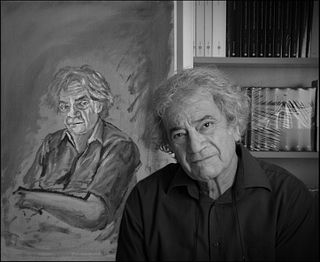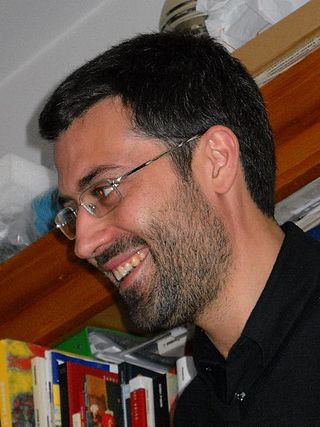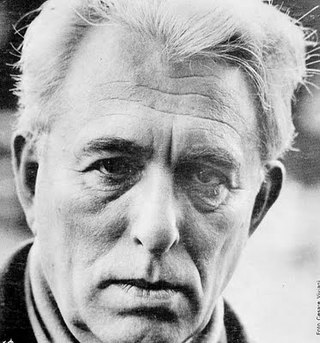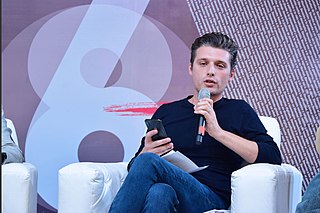
Luigi Ballerini is an Italian writer, poet, and translator.
Alberto Caramella (1928–2007) spent all his life in Florence. He was an Italian poet. His first poetical works were published in 1995 after a successful career as a lawyer. In 1997 he founded the "Fondazione il Fiore" in Florence, with the aim to promote Italian and international poetry.

Beppe Costa is an Italian poet, novelist and publisher.

Andrea Bajani is an Italian novelist, poet, and journalist. After his debut with Cordiali saluti, it was Se consideri le colpe which brought him a great deal of attention. Antonio Tabucchi wrote about his debut novel, "I read this book with an excitement that Italian literature hasn't made me feel in ages." The book won the Super Mondello Prize, the Brancati Prize, the Recanati Prize and the Lo Straniero Prize.

Franco Fortini was the pseudonym of Franco Lattes, an Italian poet, writer, translator, essayist, literary critic and Marxist intellectual.

The International Literary Prize of the city of Sassari takes place during the festival Ottobre in Poesia.

Fabio Barcellandi is an Italian poet and translator.

Giorgio Orelli was an Italian-speaking Swiss poet, writer and translator.
Marcello Landi (1916–1993) was an Italian painter and poet.

Franco Pappalardo La Rosa is an Italian journalist, literary critic, and writer. He graduated from Turin university. He has lived in Turin since 1963. He contributed to cultural pages of Giornale del Sud, L'Umanità and Gazzetta del Popolo, and to many dictionaries, as Dizionario della Letteratura Italiana, Grande Dizionario Enciclopedico-Appendice 1991 and Dizionario dei Capolavori. Nowadays he contributes to many literary magazines, as Hebenon, Chelsea and L'Indice. He edited the publication of some works written by contemporary Italian writers, as Stefano Jacomuzzi, Giorgio Bàrberi Squarotti, Emanuele Occelli, Francesco Granatiero and Angelo Jacomuzzi. He took part in National and International Conferences on figures and aspects of contemporary poetry and fiction. He edits I Colibrì, fiction library between journalism and literature. He is founding member and member of the Board of Governors of the International Association “Amici di Cesare Pavese”.

Barbara Carle is a French-American poet, critic, translator and Italianist. She is Professor Emerita of Italian at California State University Sacramento.

Maurizio de Giovanni is an Italian author of mystery novels.

Gian Maria Annovi is an Italian poet, essayist, and professor. He has published five collections of poetry, along with appearing in various literary journals, and anthologies. He is currently an Associate Professor of Italian and Comparative Literature at the University of Southern California.

Emanuele Corocher is an Italian writer born in Verona, Italy, living and working in Verona, Italy. His novel "Morire a Marcinelle" published by Tra le righe libri for the social theme and for the memory of the terrible disaster that took place in Marcinelle.

Claudio Damiani is an Italian poet. He was born in San Giovanni Rotondo in the south of Italy (Puglia) in 1957 though at an early age, he moved to Rome where he still lives. He made his debut in 1978 in Nuovi Argomenti, the magazine directed by Pasolini, Moravia and Bertolucci. In the first half of the 1980s, he was among the founders of the magazine Braci, where a new classicism was proposed. Inspired by ancient Latin poets and by the Italian Renaissance, his themes are mainly nature and cosmos, with a side attention to current scientific research. "If the Horatian scenes of Sabina refer to a type of modern Arcadia, their specific quality is above all to approach a voice that is internal and literally poetic, refounded and reguarded like an unexpected and precious gift". His poems have been interpreted by such actors as Nanni Moretti and Piera Degli Esposti. Main prizes and awards: Premio Montale, Premio Luzi, Premio Lerici, Premio Volterra, Premio Laurentum, Premio Brancati, Premio Frascati, Premio Alpi Apuane, Premio Camaiore.

Gianni Ianuale is an Italian poet, literary critic lives and works in Napoli.

Carmen Moscariello is an Italian poet.
Mario Benedetti was an Italian poet. He was among the founders of the contemporary poetry magazines Scarto minimo and Arsenal littératures.

Franco Loi was an Italian poet, writer, and essayist. He was born in Genoa, and died in Milan, aged 90. He made his debut in 1973 as a poet using dialect and had a good success with the work I cart, and the following year, 1974, with Poems of love. In 1975, the poet proved to have reached complete maturity of expression with the poem Stròlegh, published by Einaudi with a preface by Franco Fortini.

Virgil Schönbeck, known by his pen name Virgilio Giotti, was an Italian poet writing both in Italian and in the Triestine dialect. Giotti's poetry "which is not so much linked to the vernacular tradition as to contemporary poetry in the Italian language, from Pascoli and the Crepuscolari to hermeticism, uses the dialect to give more intimate vibration to its lyrical motifs, now inspired by a loving or familiar, serene or painful intimacy, now by nature, by the landscape, by the minute life of his city; in forms that from the musicality of the canzonetta approach more and more, and with ever greater grace, an epigrammatic essentiality."

















